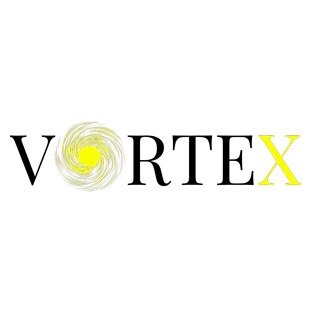Best Renewable & Alternative Energy Lawyers in El Salvador
Share your needs with us, get contacted by law firms.
Free. Takes 2 min.
Or refine your search by selecting a city:
List of the best lawyers in El Salvador
About Renewable & Alternative Energy Law in El Salvador
El Salvador has made significant progress in the development and integration of renewable and alternative energy sources into its national energy grid. The country dedicates an increasing portion of its resources to diversify its energy mix, focusing on sources such as geothermal, hydroelectric, solar, and wind power. The legal framework has been shaped to encourage both domestic and foreign investment in this sector, promote energy security, foster sustainable development, and reduce dependence on fossil fuels. Legislation addresses not only energy generation, but also environmental impact, land use, taxation, and the rights of local communities.
Why You May Need a Lawyer
Individuals and businesses dealing with renewable and alternative energy in El Salvador may encounter various legal challenges. Common situations that often require legal advice include:
- Obtaining permits and licenses for constructing energy projects
- Navigating land use, property rights, or environmental impact assessments
- Negotiating power purchase agreements and government incentives
- Complying with import and export regulations for renewable energy equipment
- Drafting and reviewing contracts with partners, suppliers, and investors
- Addressing community consultations and social responsibility requirements
- Resolving disputes arising from project development or operation
- Understanding tax exemptions or benefits for renewable energy projects
- Managing intellectual property related to innovative technologies
- Dealing with changes in regulation or public policy
Having a lawyer with expertise in the local legal framework can ensure compliance, protect investments, and help navigate complex administrative processes.
Local Laws Overview
El Salvador's renewable and alternative energy sector is governed primarily by the Renewable Energy Promotion Law (Ley de Incentivos para el Uso de Recursos Renovables en la Generación de Energía Eléctrica), along with other regulations and decrees. Key aspects include:
- Tax incentives such as exemptions from import duties and reductions on income taxes for qualifying projects
- Streamlined permitting for renewable energy generation facilities
- Legal requirements for environmental impact studies and sustainability practices
- Regulations addressing grid interconnection and transmission access
- Government policies promoting private and foreign investment in renewables
- Special provisions for geothermal, solar, wind, and hydroelectric project development
- Requirements for community engagement and benefits sharing
- Clear processes for bidding and establishing power purchase agreements with distributors
Compliance with these laws is critical for project success and avoiding fines or delays.
Frequently Asked Questions
What qualifies as renewable or alternative energy in El Salvador?
Renewable or alternative energy generally includes energy generated from sources such as solar, wind, small-scale hydro, biomass, and geothermal resources, as defined by national legislation.
What incentives does the government offer for renewable energy projects?
The government provides tax exemptions, import duty relief on equipment, expedited permitting, and sometimes soft loans or grants for qualifying projects.
Do I need a permit to start a solar or wind energy project?
Yes, permits are required for energy generation projects. The process involves environmental impact assessments, local municipality approvals, and technical evaluations by regulatory agencies.
Who regulates the energy sector in El Salvador?
The Superintendencia General de Electricidad y Telecomunicaciones (SIGET) acts as the regulatory authority for electricity and telecommunications, overseeing compliance and market operations.
How are communities involved in renewable energy projects?
The law requires project developers to engage local communities, address their concerns, and provide benefits or compensation when relevant.
Can foreign investors participate in renewable energy projects?
Yes, foreign investment is encouraged, and the process for participation is usually the same as for domestic investors, subject to local laws and regulations.
How long does it take to receive the necessary permits?
The permitting timeline varies by project type and complexity, but the government has worked to streamline the process, typically taking several months from initiation to approval.
What happens if my project does not comply with environmental regulations?
Noncompliance can result in fines, suspension of operations, or revocation of permits. It is important to engage in thorough environmental studies and follow all legal requirements.
Are there any import restrictions on renewable energy equipment?
There are generally no import restrictions on eligible renewable energy equipment, and customs duties may be waived for qualifying projects under specific legal provisions.
Where can I find more information about renewable energy projects?
Government ministries, regulatory agencies, and local renewable energy associations can provide detailed information and guidance on project development.
Additional Resources
- Superintendencia General de Electricidad y Telecomunicaciones (SIGET): Regulatory authority for the electricity sector
- Ministry of Environment and Natural Resources (MARN): Oversees environmental impact assessments and permits
- Ministry of Economy (MINEC): Promotes investment and manages concessions
- Asociación Salvadoreña de Energías Renovables (ASER): Industry group advocating for renewable energy
- Centro Nacional de Registros (CNR): Manages land and property records critical for project development
- Municipal governments: Involved in local permissions and community consultations
- Legal firms specializing in energy and environmental law
Next Steps
If you are considering investing in, developing, or operating a renewable or alternative energy project in El Salvador, start by:
- Clarifying your project plans and identifying potential locations
- Researching applicable laws, regulations, and incentives
- Contacting the relevant governmental agencies or industry associations listed above
- Consulting with a legal expert who understands local renewable energy law and procedures
- Preparing the necessary documentation for permits and compliance requirements
- Ensuring proper community engagement and environmental protections
Engaging legal counsel early can help prevent delays, avoid mistakes, and maximize the success of your renewable or alternative energy project in El Salvador.
Lawzana helps you find the best lawyers and law firms in El Salvador through a curated and pre-screened list of qualified legal professionals. Our platform offers rankings and detailed profiles of attorneys and law firms, allowing you to compare based on practice areas, including Renewable & Alternative Energy, experience, and client feedback.
Each profile includes a description of the firm's areas of practice, client reviews, team members and partners, year of establishment, spoken languages, office locations, contact information, social media presence, and any published articles or resources. Most firms on our platform speak English and are experienced in both local and international legal matters.
Get a quote from top-rated law firms in El Salvador — quickly, securely, and without unnecessary hassle.
Disclaimer:
The information provided on this page is for general informational purposes only and does not constitute legal advice. While we strive to ensure the accuracy and relevance of the content, legal information may change over time, and interpretations of the law can vary. You should always consult with a qualified legal professional for advice specific to your situation.
We disclaim all liability for actions taken or not taken based on the content of this page. If you believe any information is incorrect or outdated, please contact us, and we will review and update it where appropriate.
Browse renewable & alternative energy law firms by city in El Salvador
Refine your search by selecting a city.













